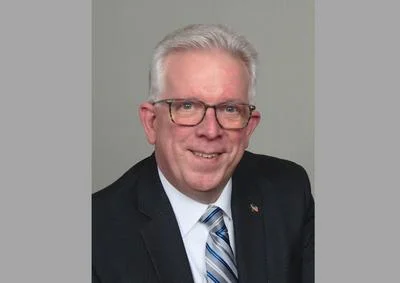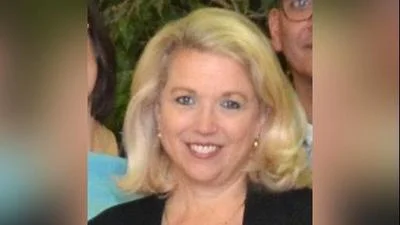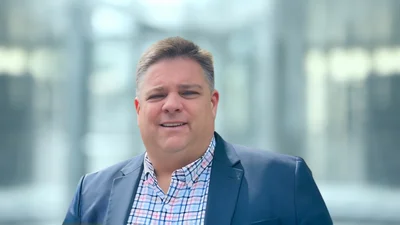Chicago Contrarian | Official Website
Chicago Contrarian | Official Website
Florian Sohnke, founder of the Chicago Contrarian, said that the Republican Party's retreat from urban areas in the 1960s enabled Democratic dominance in cities like Chicago. This statement was made on the Prairie State Wire Podcast.
"The biggest reason our big cities, or at least Chicago, fell into the clutches of the progressive left," said Sohnke. "The National Republican Party washed their hands of the inner cities in the sixties. They left it to the Democrats."
Historical accounts indicate that Republican disengagement from America's urban centers accelerated after the mid-1990s, leading to Democratic dominance and a widening urban-rural divide. According to the Cambridge Review of Politics, this shift was fueled by economic changes, suburban flight, and nationalized policy debates, leaving the GOP with little local influence in most large cities and altering the nation’s political landscape.
Pew Research reports that as of 2024, about 60% of urban county voters identify as Democrats or lean Democratic, while only 37% identify with the GOP. This trend has persisted and widened since the early 2000s. In contrast, rural areas have moved sharply Republican, giving the party a 25-point advantage in those regions. This demonstrates the GOP’s long-term decline in urban voter registration and election performance.
According to City Journal, cities with some sustained GOP presence, like Dallas–Fort Worth, have generally enacted more moderate fiscal policies and have higher median incomes compared to cities governed exclusively by Democrats. The report suggests that Republican disengagement leads to governance shifts, with Democratic-led cities often adopting more progressive policies but facing varying socioeconomic outcomes.
Sohnke is also known as a freelance speechwriter, researcher, and analyst focused on municipal governance, policing, and education. He frequently challenges mainstream narratives in Chicago public policy through his work at Chicago Contrarian.
According to its "About" page, Chicago Contrarian was founded in August 2019 as an independent commentary platform offering contrarian perspectives on city politics, education, and public safety. The site targets civic-minded readers looking for alternative analysis and challenges to conventional policy approaches in Chicago.
___________
FULL, UNEDITED TRANSCRIPT
Brian Hyde: [00:00:00] Welcome to the Prairie State Wire Podcast. I'm Brian Hyde. Today I'm joined by Florian Sohnke. Florian. I'm just, I'm gonna come right out and say that, uh, that sounds like a great writer's name, and, and yet I'm just, I'm just becoming acquainted with you and the Chicago contrarian. Tell me a little bit about yourself and your background, and then let's talk about some of the issues that, uh, that you take on on a regular basis.
Florian Sohnke: Brian first, thanks for hosting me. I'm a freelance writer and editor. I've done some speech writing and, and, uh, I'm, right now I'm completing editing on a book, but I created Chicago Contrarian and, uh, five years ago because I thought Chicago was missing a conservative voice. The purpose of which was to inform Chicago.
And as you well know, Chicago is a deep, deep, deep blue city. Um, it does have some conservative voices On the radio, you have Dan Proft and Amy Jacobson. In the morning answer you had John Cass, [00:01:00] who has written a, a, a conservative column for many years with a Tribune and now he's independent and you have a group like, uh, Illinois policy, which, uh, covers.
The statewide issues. And I thought, uh, after a cursory examination of the political landscape in Chicago, my view was we needed, um, a, a, a media source, not breaking news, but a media source to inform Chicago's conservatives of conservative ideals and, and to consistently offer conservative solutions to Chicago's problems.
So I came up with a contrarian, and, uh, we've grown a little bit. Uh, we've got some, uh, truly gifted writers, some very talented people. Um, we're reaching a, a pretty broad audience now. We have over 20,000 monthly readers, so we're very happy with our progress. And, uh, [00:02:00] now I'm here with you. So
Brian Hyde: what result of it?
One of the first things I have to ask you about, what is the reaction of, uh, members of the legacy media? How are they reacting, um, to the Chicago contrarian?
Florian Sohnke: I think, uh, they have grown accustomed to us, but only through Grided teeth. I think they're very frustrated with us. We criticize Chicago media figures very often.
Most of the criticism is directed at the print media. You know, a number of the reporters there, and I would say an overwhelming majority of them are very progressive. And, uh, the decline in Chicago print media particularly, is a direct result of the editorial or editors of the two major newspapers, the Tribune in the Sun Times, allowing their reporters to allow their bias to seep into reporting.
And I think they took advantage of their readership subscribers. Started to [00:03:00] see an increase and a more obvious bias. They retreated. And I think this is why that both newspapers sometimes went nonprofit and, and, and formed a, a, uh, relationship with WBEZ, which is so far to the left, it's laughable. And now they're complaining about millions of dollars in cuts.
And the Tribune, I think, has, has struggled too. And in fact, just recently, the Sun Times, uh, uh, reported, uh, around the layoffs. So, uh, print media in Chicago, and of course now digital, their reputation is lying in ashes. And I think the general public. Chicago, uh, has warmly greeted us. They're, they're appreciative of our perspective.
It, um, confirms many of their beliefs and it's just another one of the very small number of, uh, media sources in Chicago. Um. [00:04:00] Offering a conservative voice. There is a conservative constituency in Chicago. It just needed to be tapped
Brian Hyde: into. Let's, let's talk a little bit about, uh, what some of the bigger challenges are, not just for conservatives, but uh, for people within the Chicago area.
Um, I mean, there are, there are political, uh. There are political problems that are brought up, you know, to keep people occupied. But as far as what is on the, the ground, you know, the grassroots, where are people most concerned?
Florian Sohnke: I think, uh, there are, there are three issues which dominate, um, uh, the, uh, voters in Chicago.
And I would say the first, I, I think all three of them, there's a balance there. There's not one which is more important than the other. Uh, I think there's a, like I said, a balance. I think that the primary concern is public finances. Chicago has got three very deep public [00:05:00] finance problems. They've got deep debt in the coming year.
The city of Chicago is facing around a $1.1 billion deficit. This is their annual budget and, uh, for the past. Decade or so, even though the Chicago City Council had been a reliable rubber, rubber stamp for the mayor, Lori Lightfoot ran into some problems. Brandon Johnson had some serious problems, um, uh, getting his last budget passed.
I. The second biggest problem is Chicago's hopelessly failing schools. And as you well know, uh, there are probably 60 schools in the city of Chicago in which the math and reading proficiency rates are at 0%. Uh, that is just a public embarrassment. And most of this is due to the Chicago Teachers Union, the core caucus, which is leads.
It is. Is largely responsible for shifting their focus from [00:06:00] enforcing their contract, looking out for the best interests of its members, and educating students to an entirely political agenda, and it costs students dearly. We've lost hundreds of thousands of residents, and the schools have continued to decline in quality.
The third problem is public transit. Uh, we've got a, uh, about a $700 million deficit in, in the c. Uh, fewer riders are using the CTA, it's crime ridden. So you have those three major problems. And I'd like to add, if I could, the CTU, or excuse me, the Chicago Teachers Union contract, which was recently negotiated.
This comes at a cost of 1.5 billion over the next year. So we've got a little bit over a billion dollars. City budget. We've got 1.5 billion and we need to come up to pay the new teacher's contract. And we've got about a [00:07:00] 650 to 700 and $700 million deficit in the CTA. We are way underwater. We have terrible fiscal dis dislocation.
Those are the three biggest problems. And instead of fighting and. Um, I think many residents have thrown up their hands and they've said, I'm out of here. And that has led to an exodus of over half a million people in the past 30 years from Chicago to the collar suburbs or out of state.
Brian Hyde: Goodness. So, um, I'm curious then, what, what is the role of the Chicago contrarian in, uh, in helping to either, uh, you know, solidify or, or perhaps, uh, encourage.
That, that conservative constituency out there, that probably feels, um, kind of outnumbered to put it mildly,
Florian Sohnke: probably. Uh, but those numbers did grow. I believe it was 193,000 Chicago residents voted for Trump in the 2024 [00:08:00] election. And this was, uh, welcome news to colleagues, political colleagues. I know people over the Chicago GOP.
Just conservatives with whom I've come acquainted, uh, become acquainted since in, uh, launching this enterprise. I would say again, our purpose was to inform, to give a conservative perspective. It's very difficult for me to measure. I. Our impact other than to say we've got a 20,000, we have roughly 20,000 monthly readers.
We have over 50,000 people on Twitter. I think we've been warmly embraced again, as what what we have done is to give written work, publishing our written work confirms, uh. Their political beliefs. I don't want to go so far as to say we're giving hope to people, but I think we've been welcomed and we're appreciated for giving [00:09:00] the public a perspective, which has been so long, uh, missing for so long in Chicago.
And it goes all the way back Ryan, uh, to the early 1960s. The biggest reason our, our big cities, or at least Chicago, fell into the clutches of the progressive left, is because the National Republican Party washed their hands of the inner cities in the sixties. They left it to the Democrats, and unlike some of the other cities, New York has a conservative party.
They've got a Republican party. Los Angeles has had a Republican party. They had Richard Rearden in the 1990s. New York City had Rudy Giuliani and briefly Michael Bloomberg. Chicago has been not without a Republican mayor in over a hundred years, and there have been no Republicans in the city council in decades.
So we have been part of a conservative media movement, which has emerged in the past 15 to 20 years. I [00:10:00] would say John Cass has been the most consistent. And Dan Proft and Amy Jacobson on the morning answer, Illinois policy has covered statewide issues from a libertarian perspective, and we are unapologetically
Brian Hyde: conservative.
So let's talk about managing expectations. Um, I know a lot of people, particularly with the election of Trump, um, are feeling optimistic. Like, well, we've shifted in a direction that wasn't, you know, the, uh, the direction that the Biden administration and, and, uh, basically the progressive left was taking us, um.
Talk to me about the need to not lean towards, uh, all at once kinds of solutions. Why do we have to temper our expectations?
Florian Sohnke: You know, that's a very difficult question to answer. You know, I would say as one cog in this growing conservative machine. And I, and I probably would. I I would say our, we are most aligned with the morning answer crew.
[00:11:00] Um, Illinois policy tends to be, again, they call themselves libertarian. John Cass is conservative. Um, I think our work, again, as I said, it confirms their political beliefs, uh, which has been long been absent. But I think, uh, uh, the one way I measure the impact of our work, along with our, uh, you know, partners is, um, in the past.
After a string, and this is a decades of democratic victories and watching Chicago slip further into the grip of the progressive, uh, jaw, uh, Chicago has experienced some victories at the ballot box, which gives a lot of our voters room for optimism. I think Chicago reached Eeb with the election of Lori Lightfoot, the riots in 2020.
Uh, we had Kim Fox, who was a simply dreadful prosecutor who simply shrugged at at most crime. Brandon Johnson's election [00:12:00] took us even lower. However, since his election. He has been thwarted by the city council. He has lost in several ballot initiatives and attempts to raise revenue in the city Council.
Kim Fox left office and she was replaced by a career attorney and prosecutor, a moderate Democrat. And in the past six months, six of the 10 Board of Election, uh, candidates were seated by candidates who had no affiliation with the Chicago Teachers Union. So I believe this is cause for optimism. I think Chicago could be on the rebound and at the risk of seeming somewhat conceited, I will take a little bit of credit for, uh, helping inform the public about an alternative to democratic or progressive rule.
Brian Hyde: More power to you for, for what you're doing. Let's, uh, let's direct our listeners. Where, where can they find, um, the Chicago [00:13:00] contrarian? Um, is it, is it strictly an online presence? Is this something they can actually, um, hold in their hands?
Florian Sohnke: No, it's, uh, digital only chicago contrarian.com. And then we've got a, a, a, an accompanying Twitter account, Chicago contrarian and, uh, but we're digital only.
We've got, uh, probably about 12 reg contributors. Six or seven of them are our regular people, and we get some people, we're all professionals. We have careers elsewhere. We have business owners, attorneys. Um, we've got, uh, just, we've got a broad, uh,
Brian Hyde: group of contributors. Well, it sounds like, uh. A great way to bring, uh, like-minded people together and, and hope, I hope that you're reaching, likewise, the people out there that are looking for some good, um, thought provoking content.
Again, we're, we're talking with Florian ska. Is there anything else that, uh, that you'd like to leave with our audience before we wrap things up? [00:14:00]
Florian Sohnke: Come and view our work. If you're a resident of the city of Chicago, there is a conservative constituency here. We're happy to feed it. And we're happy to be a part of what we believe is, uh, going to be putting Chicago back on the road to recovery.
So that would be my message.
Brian Hyde: Alright. Thank you so much for your time. Great. Thanks Brian. I. Again, we've been talking with Florian ska with the, uh, who's the founder of the Chicago Contrarian. This is the Prairie State Wire Podcast.






 Alerts Sign-up
Alerts Sign-up